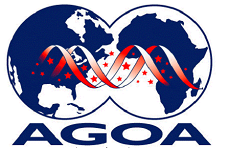In the Western Cape, dam levels are at a decade high as a cold front brings cold and more rain to the Cape. In between rain citrus farms are harvesting at a rapid clip to minimize time lost to rain.
The early citrus season has been characterized by a strong pull from Europe.
“Everyone believes EU prices will be better than prices in the UK this season – even though it’s easier to export to the UK – so we’re all trying to maximise our EU volumes,” comments a Western Cape packhouse manager who asks not to be named.
“We’re just hoping that prices on soft citrus remain strong. There are guys who have in the past sent a ‘rough’ class 2 and might be tempted to pack that 5% less strict this year because the European market is empty,” he adds. “There is the temptation to maximise exports now that the market is empty, and after the difficult few years we have behind us.”
YTD navel exports doubled
South Africa has sent double the amount of navels to the EU compared to last season by this time, while navel exports to the Middle East have halved.
In his latest newsletter the Citrus Growers Association CEO Justin Chadwick noted that last year South Africa had overall supplied 7% of Europe’s oranges, with the bulk (87%) from its own orchards in Spain, Italy and Greece.
He commented that those orange growers should appreciate that consumers remain loyal to citrus when it’s available year-round as effected, over the period of July until October, through supplied from Egypt, Morocco, South Africa, Zimbabwe, Argentina and Uruguay.
“If South African fruit was not available over that time, EU consumers would have little oranges available, forcing the consumer to shift to alternative fruit categories.”
Russian rapprochement jeopardises trade with USA Clouds are gathering over the future of South Africa’s buoyant citrus trade with the US.
Clouds are gathering over the future of South Africa’s buoyant citrus trade with the US.
Over the past six years South African citrus exports to the US have doubled, enabled by the competitive advantage conveyed by the African Growth and Opportunity Act (AGOA), which forms the cornerstone of US economic relations with Sub-Saharan Africa.
Four Democratic and Republican senators – among them, lawmakers with a reputation of being kindly disposed towards South Africa – have written a letter to Pres Joe Biden suggesting that this year’s AGOA summit not be held in South Africa, as planned.
The reason for their letter is South Africa's "deepening military relationship" with Russia, continuing that "these actions by South Africa call into question its eligibility for trade benefits under AGOA due to the statutory requirement that beneficiary countries 'not engage in activities that undermine United States national security or foreign policy interests."
The senators claim that their concern is shared by many South African citizens and businesses, adding that no decision has yet been taken regarding South Africa's continued participation in AGOA.
FreshPlaza has previously reported on the importance of the AGOA trade agreement for South African citrus; only the Western and the Northern Cape are at this point allowed to export citrus to the USA.
“This pressure does reflect that moving the Agoa forum from South Africa is one of the first rungs available to the US on the Ladder of Displeasure (™️),” tweeted the Financial Times’ Southern Africa correspondent Joseph Cotterill.
Outright calls for South Africa's ejection from AGOA have not yet been made.
